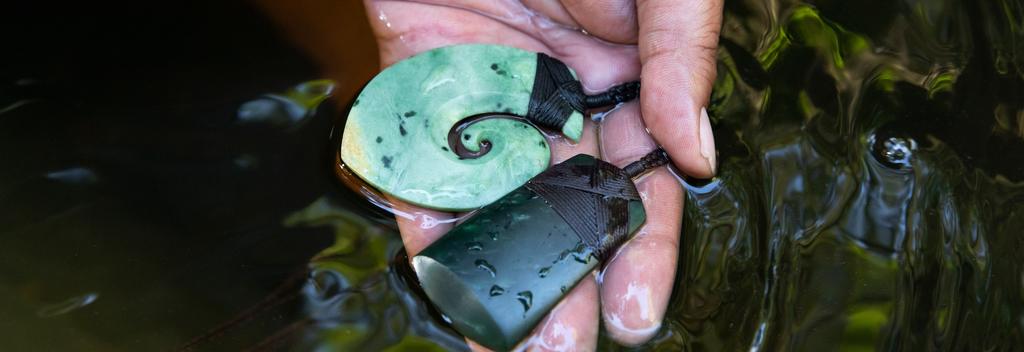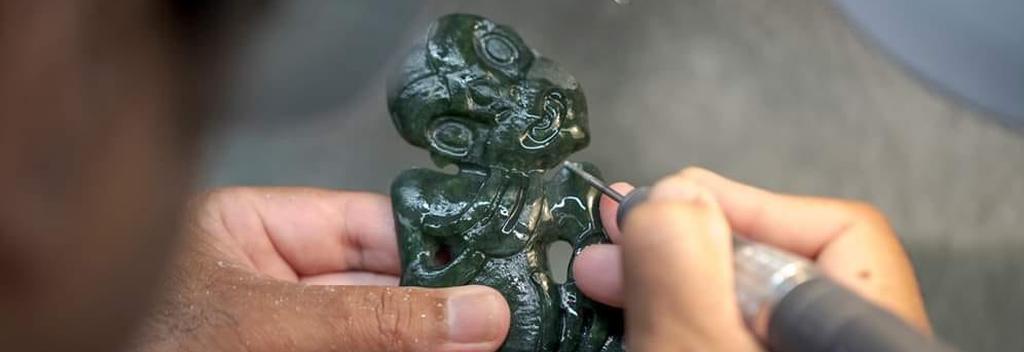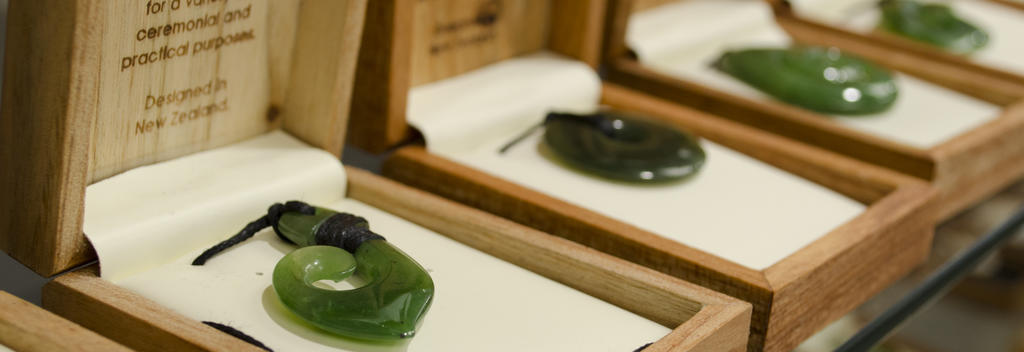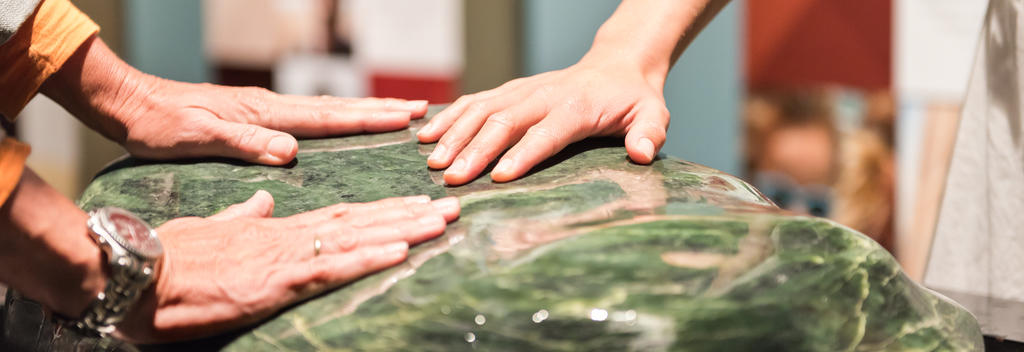
Pounamu is a precious and powerful stone. It is often carved into a pendant or necklace, which carries special meaning for its wearer.

According to the people of Ngāi Tahu (a South Island tribe), Poutini was a Taniwha (giant water being) who swam up and down the seas of the West Coast, protecting both the people and the mauri (life force) of Pounamu.
One day while resting in the warm waters off Tuhua (Mayor Island), he saw a beautiful woman bathing in the sea. Her name was Waitaki. Full of admiration, Poutini snatched her and fled south towards his mainland.
Waitaiki's husband, Tamaahua, was a powerful chief. When he realised his wife had been taken, he threw a magical dart in the air. The dart pointed in his wife's direction, and he paddled after them in an unrelenting pursuit.
Realising that Tamaahua would not rest until he reclaimed Waitaiki, Poutini decided the only way to keep her forever was to turn the woman into his essence. The taniwha transformed Waitaiki into Pounamu and laid her down within the riverbeds of the Arahura River.
When the chief discovered his wife turned to stone in the riverbed, he let out a tangi - a tremendous song of grief. If you listen closely in New Zealand's deep south, you may still hear it echo through the mountains.

Pounamu jewellery is typically carved into traditional Māori symbols. More than just a beautiful art form, pounamu can represent ancestors, connection with the natural world, or attributes such as strength, prosperity, love, and harmony.


There are many beliefs surrounding pounamu, of which is that one should not carve or buy for oneself. Just as pounamu was a gift from the land in its natural form, carved greenstone should always be a gift between two people.
To learn more about greenstone carving, and shop for meaningful gifts for your loved ones, visit Mountain Jade in Rotorua for a free guided visit of their workshop.

All pounamu is sourced from riverbeds and boulders in the South Island, especially the West Coast. The colour and markings of each stone vary according to its river source. Take a greenstone tour(opens in new window) along the Arahura River for a Māori cultural experience.
Found in colours ranging from cloudy light green to deep emerald with different markings, pounamu was considered so significant by Māori that the South Island was named after it, Te-Wai-Pounamu meaning “the waters of greenstone”.